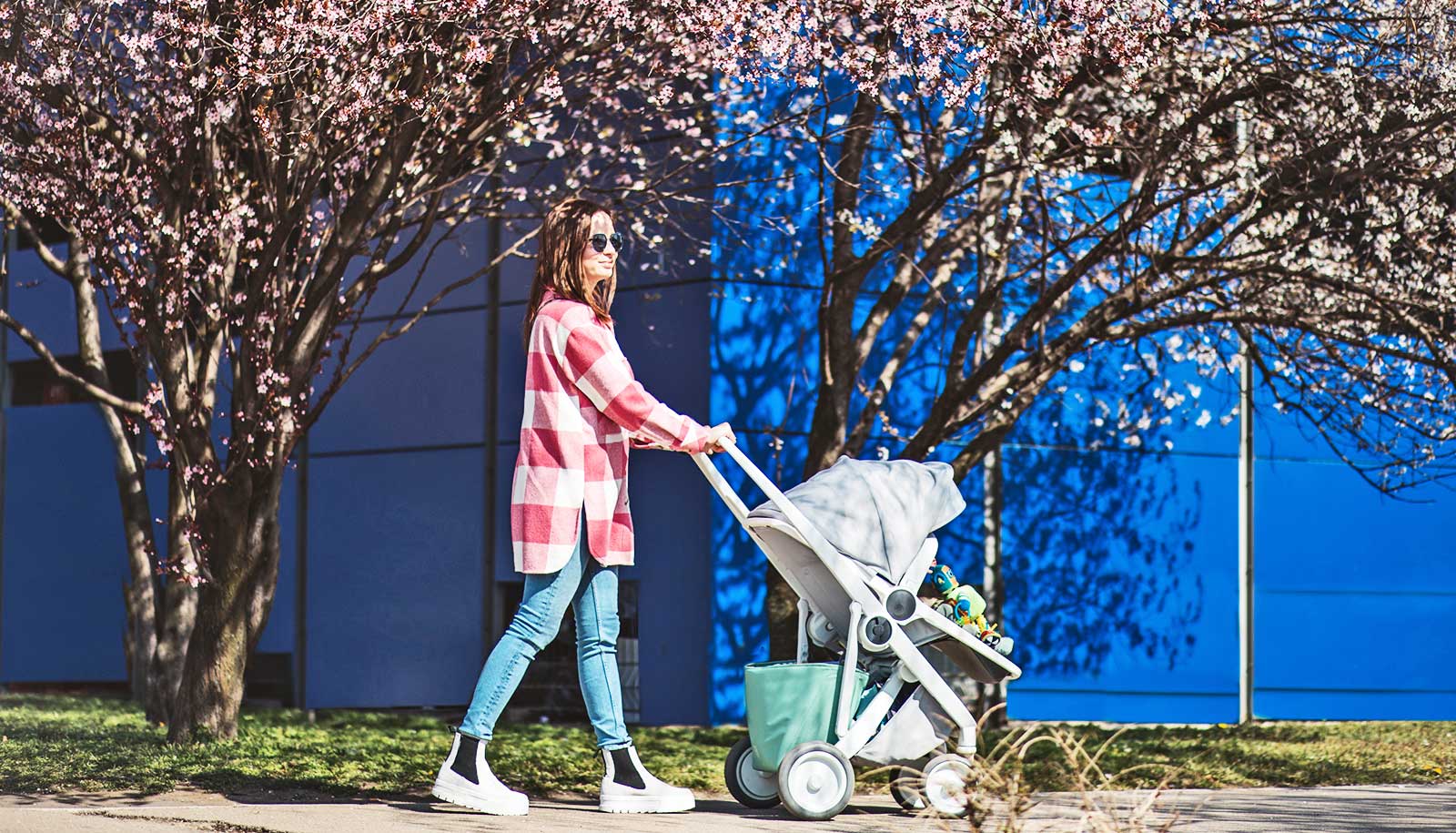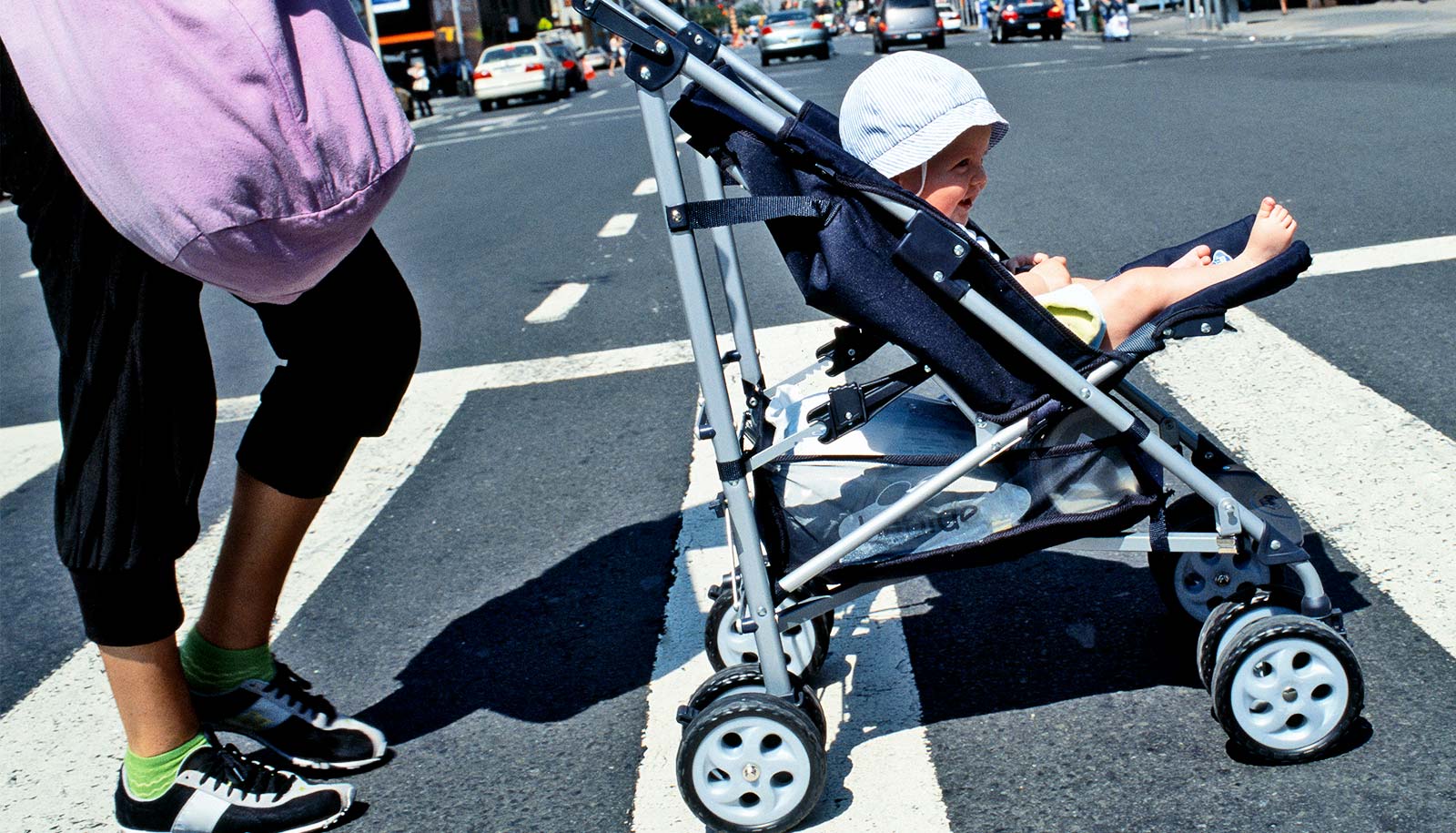In a new study, researchers found an association between exposure to green space and tree coverage and a decreased risk of postpartum depression among mothers.
The researchers conducted an analysis of more than 415,00 electronic health records of healthy, full-term births in Southern California. The findings suggest that researchers, city planners, and public health professionals should work together to develop policies and interventions that increase the amount of tree coverage to create a beneficial environment for community members—especially new mothers at risk of postpartum depression.
“This is the first study of its kind that examined the relationship between diverse green spaces, postpartum depression, and the role of physical activity,” says senior and corresponding author Jun Wu, professor of environmental and occupational health at the Program in Public Health at the University of California, Irvine.
“We were able to show a reduced risk of postpartum depression associated with eye-level exposure to green space on the streets of the neighborhood, and that reduction was further mediated by physical activity.”
According to the Centers for Disease Control and Prevention, 1 in 8 women who recently gave birth experience symptoms of postpartum depression, and if left untreated, the condition can affect the mother’s health and may cause sleeping, eating, and behavioral problems for the baby.
The researchers set out to fill a gap in research about the relationship between green space and postpartum depression. Existing studies only covered prenatal depression and relied solely on satellite-based green space data, without considering the types of green space or the mediating role of physical activity.
Analysis of the electronic health records of 415,020 singleton births to women residing in Southern California between 2008 and 2018 revealed that the highest reduction in risk of postpartum depression was associated with a street-level view of green space, compared to, say, proximity to a park.
“The postpartum depression risk decreased by approximately 4.2% with each 10% increase in street-view green space,” says lead author Yi Sun, a former UC Irvine postdoctoral scholar now a researcher at Peking Union Medical College. “Tree coverage showed stronger protective effects against postpartum depression versus other types of green space (i.e., low-lying vegetation and grass).”
Furthermore, the researchers found that increased physical activity during pregnancy was a plausible pathway linking green space to lower risk of postpartum depression.
The study appears in The Lancet Regional Health—Americas. Additional coauthors are from Oregon State University, UC San Diego, USC, Kaiser Permanente Southern California, and UC Irvine.
The National Institute of Environmental Health Sciences supported the work.
Source: UC Irvine



